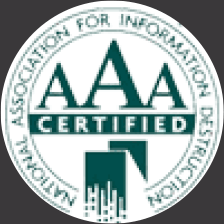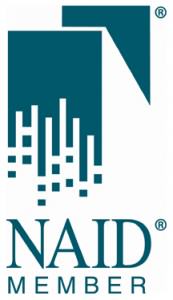
In this blog post, we are going to talk about how to prevent corporate espionage so that when it does happen – as it inevitably will – you’ll have a plan in place and won’t panic!
What would you do if your company was hit by a data breach? Or, worse yet, what if an employee had leaked all of your company’s secrets to the competition? If this has happened before, you know how devastating it can be. Corporate espionage is an extreme form of competitive intelligence that steals intellectual property and trade secrets to gain a competitive advantage. In fact, under the Economic Espionage Act (EEA) of 1996, corporate espionage is a federal criminal offense.
Conduct a Risk Analysis
The first thing to consider when looking at your company’s espionage prevention is where the threat is coming from. Every company has different obstacles preventing such actions, and it’s important that you know what yours are, so you can protect against them. Some common ones might be technology leaks, employee theft, or competitors hacking your systems – but if this doesn’t apply
Once you figure out which avenue they’re using, start thinking about how these employees would normally go about their job day:
- What do they wear?
- Do they have badges on them with barcodes that reveal information when scanned?
- Where could one find sensitive documents (on napkins at lunch?)
It can also help to leave the company with a group of people, as well as prevent an individual from coming and going without being seen.
Establish Effective Security Policies
Following proper security protocols can prevent a lot of unnecessary security flaws. Your security policies outline how employees can select secure passwords, keep passwords and security cards safe, and other best practices for handling access to company information. To prevent unauthorized access to your computer and data system – you need to make sure that any terminated employees can’t get in, sensitive material is destroyed before being thrown away, and employee activity is monitored.
The policies should also prevent any sensitive information from being stored on personal devices or in the cloud. Discourage employees from sending attachments through email without encryption and encourage them to set up firewalls for all networks that are connected to your office network, so they can’t be accessed by outsiders.
For data storage, use encrypted repositories such as virtual private servers and don’t store anything more than is required for business purposes on them. For example, if customer records need to be kept secure, then keep them off of phones which could become lost or stolen. Make it mandatory that employees have their own unique login IDs rather than sharing one with other departments, so there’s no way unauthorized individuals gain access to confidential files.
Use a Professional Shredding Service
Did you know that if you have sensitive data stored at your home, office or warehouse it can be a liability? You’re exposed to risks such as theft, blackmail, and a potential intelligence breach. Moreover, how you dispose of classified information and devices, like company phones and hard drives, can create unnecessary risks too.
Using a professional shredding service can give you peace of mind that your confidential data and devices are destroyed once for all. Shredding is one of the most recommended techniques for destroying documents and devices that may put you at risk. Hard drive and paper shredders are designed to cut data on disks into tiny pieces with rotary blades. A shredding company like IntelliShred in New Jersey can shred, recycle or dispose of your private information to ensure it’s kept safe from potential spies. A shredding company will come in and render the documents and devices useless by cutting them into tiny pieces, so they are no longer readable. This is ideal for businesses who want to protect their assets.
Follow Principles of Least Privilege
Every employee should be granted the least amount of access to privileged information possible to do their job. The Principle of Least Privilege is based on a security concept that states once an employee has access, they can do anything within the scope of what’s allowed by their level or rights.
For example, if your company only needs employees with W-level privileges for accessing customer data records and John Smith just got hired as an administrative assistant last week without any experience in this area, he doesn’t need all W-rights at first; it could take time before he does enough work to warrant these additional permissions.
Principle of Least Privilege is a strategy that uses boundaries to encapsulate your information and power. By limiting the amount of information, power, and spaces employees have access to, you reduce the risk of data breaches.
Setup Secure Infrastructure
Secure your infrastructure to prevent and detect any unauthorized network traffic. Install antivirus software, data encryption tools, firewalls, virus scanners, or anti-malware in order to prevent hackers from gaining access to your company’s resources.
Determine what type of information is sensitive enough for you that it should be protected by the security measures mentioned above. Once this has been decided, take steps such as installing a firewall between these two networks, so they have their own levels of confidentiality and don’t affect each other if one becomes compromised.
Create Propers Employee Termination Procedures
When employees retire, get fired, or quit, it’s crucial that their access codes are revoked and that you ensure they return any sensitive company information and devices. This will help prevent the information from falling into unauthorized hands and prevent former employees from using company resources to take their competitors’ data.
Have a Contingency and Crisis Management Plan
Create a clear plan in place that outlines what should happen in the event of a data breach or suspected espionage. The plan should outline steps for reporting espionage and what the company should do if it is under attack. It should also include a system for notifying all of your employees about the data breach.
In order to prevent espionage, there are many ways you can take protect your company. Different companies need different measures. However, if every measure is tailored for a specific company’s goals and security risks then all the measures work together when one of them becomes compromised.
Conclusion
The key to preventing espionage is to be aware that any employee – or even someone outside your company – could potentially have access to sensitive information if they put in enough time investigating how your workflows. Once you know what their objective is, it’s easier to find ways around them – for example, by scanning badges at entrances/exits with bar codes, so there’s no way an outsider can get past security without anyone noticing. By thinking before acting when faced with these schemes, it will let you make more informed decisions about where the risk lies and how best to prevent corporate and industrial espionage. A shredding company, like IntelliShred can give you the added peace of mind that your confidential data is destroyed indefinitely. Contact us for more information.





